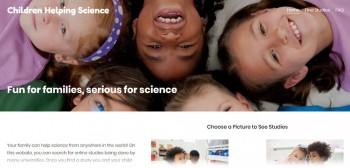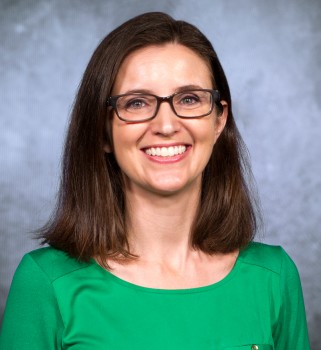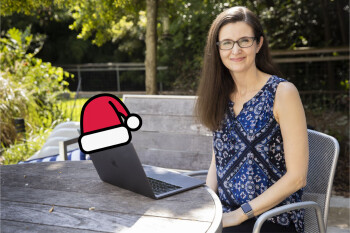Ph.D. - Psychology
Yale University - 2005

Candice Mills
Professor
Research Interests: Cognitive development, with a primary focus on how children learn to take a critical stance when learning from others
Professional Preparation
M.Phil. - Psychology
Yale University - 2003
Yale University - 2003
M.S. - Psychology
Yale University - 2002
Yale University - 2002
B.S. - Cognitive Neuroscience
University of Florida - 1999
University of Florida - 1999
Research Areas
Research Interests
Dr. Candice Mills conducts research examining how children learn from others. In one line of research, she examines how children evaluate explanations, particularly in the domain of science. She studies the factors that help children recognize weaknesses in explanation quality as well as in what circumstances children respond to weak explanations by attempting to “fill the gaps” in their knowledge. In other research, she examines how children learn to take a critical stance when learning from others, understanding that some sources may be more accurate and/or helpful than others. A new line of work in her lab examines how children think about fantastical beings like Santa Claus. Throughout her research, Dr. Mills aims to characterize developmental changes in how children learn from others, using the results to develop ideas for how to best encourage thinking and learning abilities. Dr. Mills has received grants from the National Institute of Child Health and Human Development, the Timberlawn Foundation, and the National Science Foundation. In addition, in 2011, she was awarded the Regents’ Outstanding Teaching Award from the University of Texas System. Dr. Mills earned her bachelor’s degree in cognitive neuroscience from the University of Florida and her PhD in developmental psychology from Yale University. For more information, please view our lab website at https://labs.utdallas.edu/thinklab/Research interests include :
- Cognitive Development
- Selective Trust
- Critical Thinking
- Explanation and Understanding
- Social Cognition
- Conceptual Knowledge
- Science Learning
Publications
For a list of publications, please see our lab's website: https://labs.utdallas.edu/thinklab/research/publications/ 2022 - publications
Appointments
Professor
The University of Texas at Dallas [2022–Present]
The University of Texas at Dallas [2022–Present]
Associate Professor
The University of Texas at Dallas [2011–2022]
The University of Texas at Dallas [2011–2022]
Assistant Professor
The University of Texas at Dallas [2005–2011]
The University of Texas at Dallas [2005–2011]
Additional Information
HONORS AND AWARDS
- 2023 UT Dallas Undergraduate Research Award: Mentor
- 2022 UT Dallas Undergraduate Research Award: Mentor
- 2021 UT Dallas Undergraduate Research Award: Mentor
- 2020 UT Dallas Undergraduate Research Award: Mentor
- 2019 UT Dallas Undergraduate Research Award: Mentor
- 2018 UT Dallas Undergraduate Research Award: Mentor
- 2017 Nominee: Provost's Award for Faculty Excellence in Undergraduate Research Mentoring
- 2016 Winner of Graduate Professional Week Three Minute Thesis Faculty Competition
- 2014 Nominee: Provost's Award for Faculty Excellence in Undergraduate Research Mentoring
- 2013 UT Dallas Undergraduate Research Award: Mentor
- 2013 Seniors' Choice Award, School of Behavioral and Brain Sciences
- 2013 Nominee: Provost's Award for Faculty Excellence in Undergraduate Research Mentoring
- 2012 UT Dallas Undergraduate Research Award: Mentor
- 2011 UT System Regents’ Outstanding Teaching Award
- 2009 UT Dallas Undergraduate Research Award: Mentor
- 2009 Excellence in Teaching Award, UT Dallas
- 2009 Finalist for UTD Chancellor's Outstanding Teaching Award
- 2008 UT Dallas Undergraduate Research Award: Mentor
- 2007 UT Dallas Undergraduate Research Award: Mentor
- 2004 Yale University Dissertation Fellowship
- 2004 Conference Travel Award, Yale Graduate Student Assembly
- 2000 NSF Graduate Research Fellowship
- 2000 Yale Graduate School Fellowship
- 1999 Outstanding Four-Year Scholar, University of Florida
- 1998 Phi Beta Kappa, University of Florida
- 1996 National Merit Scholarship, University of Florida
News Articles
‘Yes, Virginia, About Santa …’: Expert Explores Shifts in Belief
Parents concerned about how to handle the Santa Claus secret with their young children should know that there is no strictly naughty or nice way to address it, according to a child development expert at The University of Texas at Dallas.Team’s Online Project Aims To Expand Scope of Psychology Research
 Dr. Candice Mills, associate professor of psychology in The University of Texas at Dallas’ School of Behavioral and Brain Sciences, has received a three-year, $1.25 million grant from the NSF to develop an online platform for research on cognitive development in children ages 3 to 6. The result will be a website that will offer fun research activities for families and will help scientists understand child development on a larger scale than ever before.
Dr. Candice Mills, associate professor of psychology in The University of Texas at Dallas’ School of Behavioral and Brain Sciences, has received a three-year, $1.25 million grant from the NSF to develop an online platform for research on cognitive development in children ages 3 to 6. The result will be a website that will offer fun research activities for families and will help scientists understand child development on a larger scale than ever before.
Professor Helps Launch Platform for Online Developmental Psychology Studies
 When COVID-19 mitigation measures put the brakes on face-to-face cognitive development research across the country, a half-dozen developmental psychologists united to create a way to bring their work online — potentially altering their field beyond the pandemic pause.
When COVID-19 mitigation measures put the brakes on face-to-face cognitive development research across the country, a half-dozen developmental psychologists united to create a way to bring their work online — potentially altering their field beyond the pandemic pause.University of Texas at Dallas psychologist Dr. Candice Mills is one of six scientists from six U.S. universities coast to coast who joined forces to launch the Children Helping Science project, which is designed to increase participation in online developmental psychology studies.
Mills, an associate professor in the School of Behavioral and Brain Sciences, described the website as a venue where families can view a large database of ongoing research projects from universities around the world to find studies about child development that they can do from home.
Grant to Help Scientist Explore How Children Think About Explanations
 A UT Dallas researcher has received a grant from the National Science Foundation (NSF) to better understand how children process scientific explanations, and whether those explanations whet their appetite to learn more about a topic.
A UT Dallas researcher has received a grant from the National Science Foundation (NSF) to better understand how children process scientific explanations, and whether those explanations whet their appetite to learn more about a topic.The three-year, $475,000 grant will support the work of Dr. Candice Mills, associate professor in the School of Behavioral and Brain Sciences. She has been studying how children make sense of scientific explanations at different ages.
Dr. Candice Mills and The Santa Project
 Dr. Candice Mills, Associate Professor of Psychology in the School of Behavioral and Brain Sciences, conducts research examining how children learn from others. Dr. Mills aims to characterize these developmental changes in children to advance ideas on how to best encourage thinking and learning abilities. A new line of work in her lab examines how children think about fantastical beings like Santa Claus.
Dr. Candice Mills, Associate Professor of Psychology in the School of Behavioral and Brain Sciences, conducts research examining how children learn from others. Dr. Mills aims to characterize these developmental changes in children to advance ideas on how to best encourage thinking and learning abilities. A new line of work in her lab examines how children think about fantastical beings like Santa Claus.